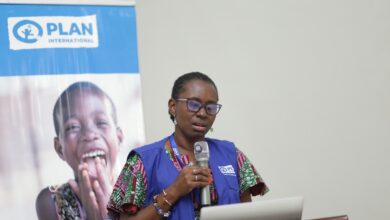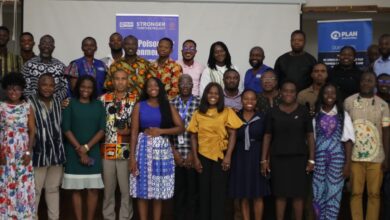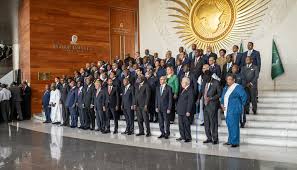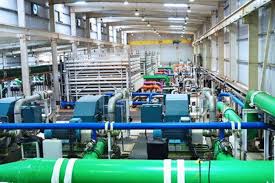Toilet facilities in most schools in Ghana do not have changing rooms for girls – WASH Technical Specialist
Toilet facilities in most schools in Ghana do not have changing rooms for girls – WASH Technical Specialist

The Water, Sanitation and Hygiene (WASH) Technical Specialist, World Vision Ghana (WVG), Mr. Yaw Attah Arhin, has revealed that there are many schools in Ghana where toilet facilities do not have changing rooms for girls.
According to him, the situation does not make the school environment conducive or friendly to the girl child, particularly those who have reached the age of puberty.
“While the lack of access to toilet facilities in schools is regrettable, it is equally worrying that many of the available toilet facilities in schools do not have changing rooms for girls.” The WASH Technical Specialist reiterated.
Mr. Attah Arhin, made the revelation in his welcome remarks during the Master’s Encounter of the School Sanitation Solutions (Triple S) Challenge held on Tuesday, August 9, 2022, at Sunlodge Hotel, Tesano, Accra
He explained an organization like the WVG whose vision for every child is LIFE IN ALL ITS FULLNESS, believes that nothing can be more important to child wellbeing than access to safe water, improved sanitation, and hygiene. That is why we prioritize and promote access to sustainable WASH services in communities, households, schools, and healthcare facilities.
He emphasized that there is a lot more government, development partners and all stakeholders can do to ensure that everybody everywhere has sustainable access to improved sanitation.
“We pledge our commitment to partner with the Ministry of Sanitation and Water Resources (with whom we have an MoU) and other Development Partners in the fight against poor sanitation and sustainable access to improved basic sanitation in the country.” Mr. Attah Arhin assured.
Following the official launch of this year’s Masters Encounter of the School Sanitation Solutions (Triple S) which is the 3rd edition on 30th March 2022, the challenge started with the publication of the invitation to submit entries in the Junior Graphic and other platforms. This publication contained all the relevant instructions, including the fact that the essays should be handwritten with a word limit. There were also instructions on the submission procedure.
All interested students (Primary 6 to JHS 2) were invited to respond to an essay topic: “You have been appointed the Minister for Sanitation and Water Resources. the government has taken note of the negative effects of Open Defecation and has allocated GHS 500 million annually to end this menace. You have been requested to submit a plan for Cabinet approval describing the measures your ministry intends to implement in order to end Open Defecation and increase access to household toilets by 2030”
At the deadline for submission of entries, 687 valid entries were received from all over the country.
These scripts were presented to carefully selected examiners (Acknowledge Them – Mr. Kweku Quansah, Mr. Tony Tsekpetse, Mr. Vincent Tay, Madam Theodora Adomako Adjei, Madam Charlotte Adjei, Madam Martha Tia-Adjei With Mr. Patrick Apoya As The Chief Examiner). This Process Was Coordinated by Mr. Emmanuel Addai, Mr. Frank Ofosu-Appiah, Ms. Sarah Swanzy-Essien, and Yours Truly Yaw Attah Arhin.
At the end of the contest among the 13 selected individuals, from four zones– Shea Zone, Cocoa Zone, Tilapia Zone, and Coconut Zone, four outstanding performing contestants emerged to engage each other in the Battle of Champions to be staged at the National Theatre, on the 21st August 2022.
According to the organizers, the 13 contestants were selected based on proportional representation. This was because the entries from some zones were huge while the entries from other zones were few. For example, while over 430 entries were received from the Coconut Zone (Central, Western and Western North), just about 26 were received from the Shea Zone.
It said the objectives of the Triple S challenge include the following: To influence children to become sanitation conscious and agents of change, build the capacity of children in issues of environmental sanitation, challenge children to co-create sustainable solutions to sanitation challenges around them, and to advocate the removal of barriers and increased access to improved sanitation, particularly in basic schools.




